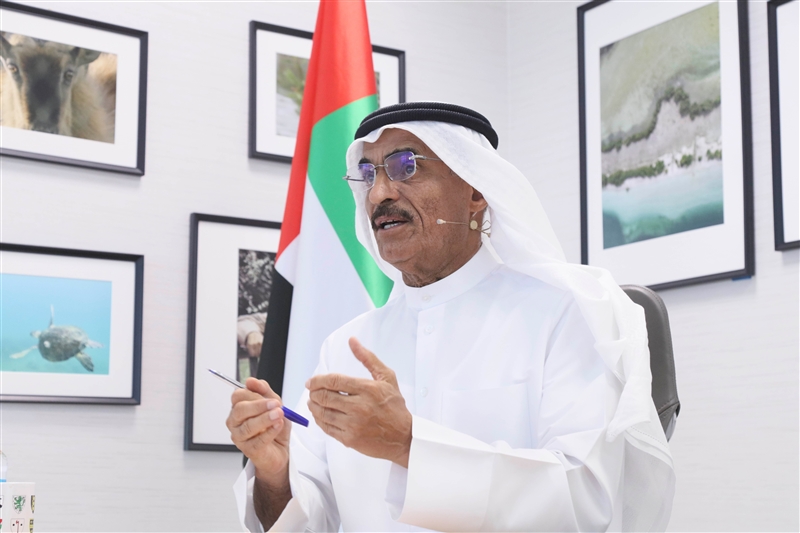Ocean Champions set out plans for 2020-2021 to build back bluer
- October 7, 2020
- Posted by: administrator
- Category: Conferences, Environmental, Global, Water Issues

As part of the high-level week of the UN General Assembly and the UN Summit on Biodiversity, the UAE, Fiji, Kenya, Norway, Palau, Portugal, and Sweden convened a roundtable of ocean champions to propose and review critical deliverables for 2020 and 2021.
Following a pause in key environmental processes due to COVID-19, the event aimed to build momentum toward ambitious near-term outcomes for ocean health, notably a new global target of conserving 30% of the oceans by 2030.
The co-hosts are also the recent and incoming hosts of the world’s three largest ocean conference series: the UN Ocean Conference, Our Ocean, and the World Ocean Summit.
The group – consisting of 15 ministers from the UK to the Maldives, as well as 15 UN and NGO executives and five youth representatives – proposed potential deliverables in four focus areas:
- coastal and marine protected areas
- fisheries
- marine plastic litter
- restoration and protection of mangroves, wetlands, and seagrass beds
A number of proposals focused on enshrining the 30% conservation target, which will be formally considered at the next negotiations under the Convention on Biological Diversity, scheduled in China for the second quarter of 2021.
The Global Ocean Alliance and the High Ambition Coalition were cited as key vehicles. A number of speakers noted the potential to meld ocean conservation goals with measures to enable offshore renewable energy, closely monitored food production, and job creation.
Participants also proposed deliverables around deals under which debt repayments are directed to management of marine protected areas, and a new global treaty regulating marine plastic pollution.
In the face of sustainably fished stocks falling from 90% in the 1970s to less than 65% today, participants highlighted increased support for community-based fisheries management and universal ratification of the Agreement on Port State Measures on illegal fishing, among other objectives.
Greater allocation of up to US$30 billion per year proposed for mangroves & wetlands restoration and protection
On mangroves and wetlands, 35% of which have been destroyed over the last 20 years, participants proposed greater allocation of climate and other finance – up to US$30 billion per year – for restoration and protection, with expected economic benefits of 300% return on investment. The next global climate change negotiations in 2021 are hoped to see unprecedented levels of mangrove and wetland actions captured in countries’ commitments.
The deliverables will be revisited during the upcoming iterations of the Our Ocean conference in Palau in December 2020, the UN Ocean Conference and World Ocean Summit in Portugal in 2021, and Oceanology International Middle East in the UAE in 2021.
His Excellency Dr Abdullah Belhaif Al Nuaimi, UAE Minister of Climate Change and Environment, said:
“The UAE has doubled down on ocean conservation because we know that it generates jobs and reduces human health costs on top of the moral imperative. We accordingly became the first country in our region to endorse the 30 by 30 conservation target and to pass robust marine litter regulations.
“We run one of the world’s largest mangrove replanting programs and have engaged with our traditional fishing community to enhance their livelihoods through seasonal and permanent fishing bans on certain species. We are committed to further action to protect our oceans and benefit our economy.”
Her Excellency Ine Marie Eriksen Søreide, Norway’s Minister of Foreign Affairs, commented:
“We need to place the connection between effective protection, sustainable production, and equitable prosperity center stage to ensure sustainable ocean management. The challenge is to consider multiple uses and pressures simultaneously. Only this way can we ensure that the marine ecosystems can continue to provide the services we all depend on.”
His Excellency F. Umiich Sengebau, Minister of Natural Resources, Environment and Tourism of Palau, added that for island states like Palau, coral reefs are the foundation of the ocean economy. Urgent new ambition to reduce stresses on reefs and strengthen their resilience and partnerships to avert the crisis that we face would be needed in the next global biodiversity agreement, he said.
According to her Excellency Gunvor G Ericson, Sweden’s State Secretary for Environment and Climate, marine plastic litter and microplastics cross borders and must be addressed across borders – and protecting the oceans requires urgent, strong, and adequate action. “We therefore urgently need a global agreement to deal with this more effectively and comprehensively,” she added.
